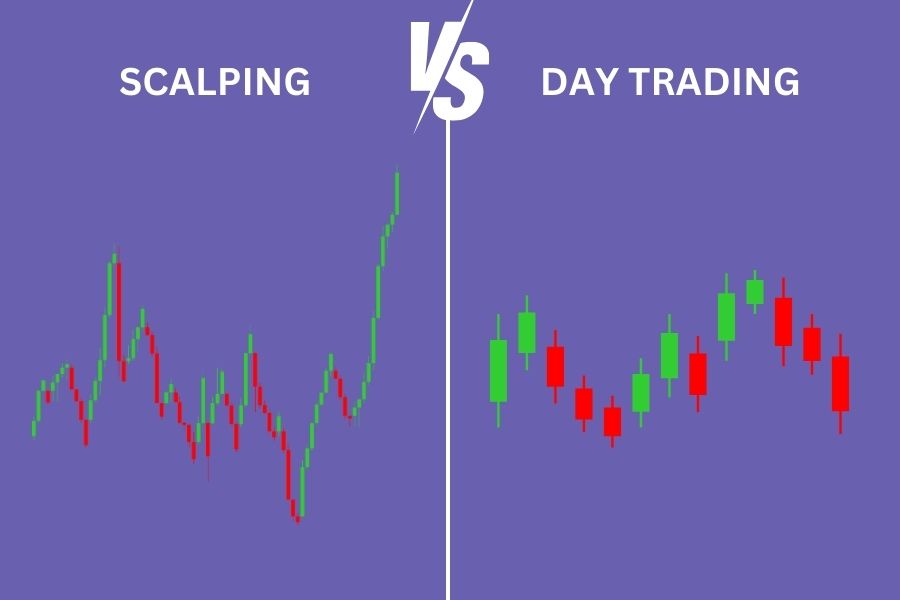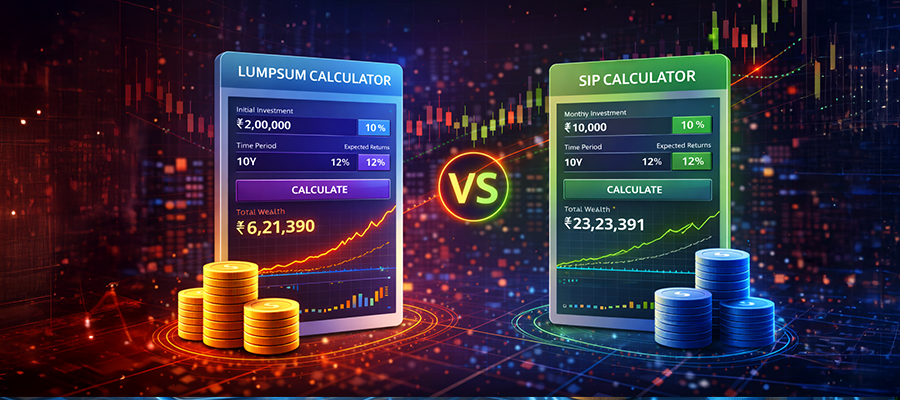In the field of trading, Scalping and day trading are two of the most widely practiced trading strategies among traders.
Both methods aim to capitalize on price movements but differ significantly in their approach and execution. Scalping involves making quick trades to earn small profits, while day trading focuses on holding positions for a few hours to capture larger price changes.
In this article, we’ll discuss both these key differences between scalping and day trading to ensure you know which one of them is likely to work best for you.
Understanding Scalping
A scalping strategy is a form of trading in which the trader attempts to make a quick small profit by purchasing and selling financial instruments like stocks and options.
These trades often last just a few seconds to a few minutes. Scalpers look for tiny price movements and make many trades throughout the day, aiming to accumulate profits over time.
This trading style is very hectic as it requires a lot of focus and skill in order for decisions to be made in a very short time frame.
Since the profitability in each trade is low, scalpers usually make profits through high trading volumes in order to increase their net income.
Understanding Day Trading
Day trading involves buying and selling stocks within the same trading day, prior to the market’s closing.
This strategy focuses on capitalizing on stock price movements rather than long-term investments. Therefore, closely monitoring stock price fluctuations is essential for generating profits from intraday trading.
To engage in intraday trading, you’ll need to open an online trading account. When placing trades during the day, it’s crucial to indicate that the order is specifically for intraday trading.
These orders are squared off or converted into delivery before the trading day ends, which is why this approach is commonly referred to as intraday trading.
Key Difference between Scalping and Day Trading
The following table summarizes scalping and day trading:
| Scalping | Day Trading | |
| Trade duration | A few seconds to a few minutes | A few minutes to a few hours |
| Trades closed before the market close | Yes | Yes |
| Trading frequency | Higher | Lower |
| Catalyst for trades | Range-based trading, news trading | Range-based trading, news trading |
| Personality | Highly focused and decisive | Focused |
Traders should be aware of these differences, especially those who are beginner traders seeking option trading classes for purposes of improving their skill levels.
Which Strategy is Better?
Scalping and day trading are both short-term trading strategies, but they differ in approach.
As mentioned, scalping involves making quick trades to capture small profits multiple times a day, usually within seconds or minutes. Day trading, on the other hand, involves holding trades for several minutes or hours, focusing on larger price movements.
If you prefer fast-paced trading with frequent decisions, scalping might suit you. But if you want to take more time analyzing market trends and can handle moderate risk, day trading could be a better fit.
Ultimately, the choice depends on your risk tolerance and trading style.
Conclusion
Both scalping and day trading offer unique opportunities for traders to profit from market movements. Scalping is ideal for those who prefer quick trades and small gains, while day trading suits those looking for larger profits over a slightly longer timeframe.
Understanding your goals and risk tolerance is vital when choosing a strategy. If you’re interested in learning scalping techniques, enroll in a scalping trading course on Upsurge.club to enhance your skills and boost your trading success.




